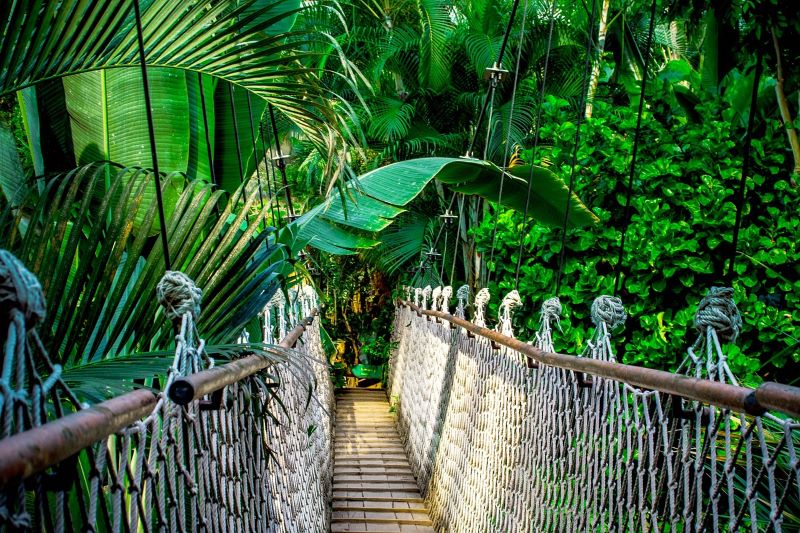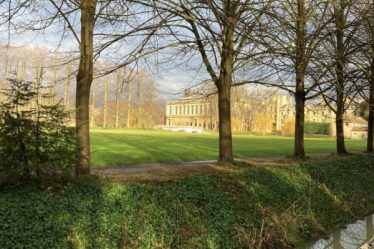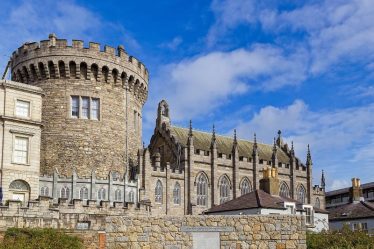
Fancy some exotic sun, sand and sea? How about Thailand? As Cambridge to so accessible to travel from, getting to an international airport is super easy. The city station quickly links to London and therefore to the nearest airports for airport transfers of Stanstead and Luton but it is also really easy to reach Gatwick and Heathrow for flights. This makes it a great base for those who ravel regularly. Some may enjoy the comfort of having their own overseas base, therefore buying a renovation project may be more interesting than a hotel or resort. Here we look at purchasing a heritage property in Thailand!
Thailand’s rich history and diverse architectural heritage make it a fascinating playground for the real estate industry. The rising trend of refurbishing heritage properties into modern, functional spaces is becoming increasingly apparent. You can join the trend by considering property for investment in Thailand. By transforming ancient temples, colonial residences, and more into stylish hotels, residential units, or buzzing cafes, the country is redefining urban development while retaining its historical allure.
The Appeal of Transforming Historical Properties
Investing in the refurbishment of historical properties is not a traditional approach in real estate, but Thailand is steadily embracing this trend. The reasons are manifold.
Primarily, these structures embody an invaluable historical and architectural significance that is irreplaceable. Their transformation enables the continuation of Thailand’s profound cultural legacy while simultaneously offering new spaces for commercial or residential purposes.
Secondly, this refurbishment strategy is more eco-friendly than demolition and reconstruction. It lessens the demand for new building materials, curtails waste production, and decreases the environmental impact.
Finally, the unique aura and character that historical buildings naturally possess provide a remarkable appeal that newer constructions often fail to deliver, drawing in those looking for something out of the ordinary.
Varied Types of Transformed Properties in Thailand
Several varieties of historical properties are undergoing transformations in Thailand, each possessing its unique charm. Here are three commonly revitalized types:
- Colonial Residences: These properties, dating back to the colonial period, exhibit a unique blend of Eastern and Western architectural influences. They are frequently converted into high-end eateries, boutique hospitality units, or luxury residences.
- Thai Traditional Houses: Characterized by wooden structures and raised floors, these homes are often reinvented into local enterprises like coffee shops, art houses, or wellness centres.
- Temples and Spiritual Structures: Certain decommissioned temples or spiritual structures are gently altered into cultural hubs or event venues, preserving their original, spiritual allure.

Exemplary Transformations of Historical Properties in Thailand
Thailand has witnessed several outstanding transformations of heritage properties. Here are a few remarkable cases:
- The Sathorn Mansion: This colonial-era mansion, nestled in Bangkok’s heart, has been revamped into an upscale hotel and dining venue. Its eye-catching turquoise exterior and lavish interior décor offer a striking contrast to the city’s contemporary skyline.
- The Jam Factory: Originally a factory, this structure has been creatively reimagined into a trendy art and dining venue. Its traditional architectural elements, combined with the contrast in art displayed within its walls, and riverside position make it a favourite haunt for locals and visitors.
- The Old Town Co-Living Space: This quaint traditional Thai house in Chiang Mai was redesigned into a co-living space for remote workers, exemplifying the possibilities of residential transformation.
Impact on Thai Real Estate
The wave of repurposing heritage properties is not only reshaping the urban landscape but also making significant ripples in Thailand’s real estate industry. This new trend is successfully creating an exclusive segment in the real estate market, catering to a niche of buyers and renters looking for properties with a unique aesthetic and rich cultural backstory.
Attracting Global Investors
The transformation of heritage properties has caught the eye of international investors and real estate developers. By offering a blend of history, culture, and luxury, these projects provide an attractive proposition for investment. The global interest is significantly contributing to the inflow of foreign capital into Thailand’s real estate market, fostering a stronger, more dynamic industry.
Boosting Property Values
When executed well, the refurbishment of heritage properties can result in a substantial increase in property value. The unique character, history, and architectural details of these properties make them highly sought after. As demand outpaces supply – given the limited number of available heritage properties – prices tend to be more robust than those of conventional properties.
Revitalizing Neighbourhoods
The repurposing of heritage properties also has a wider community impact. As these buildings are restored and given a new lease of life, they often become catalysts for neighbourhood rejuvenation. The increased footfall to businesses housed in these buildings, such as boutique hotels, artsy cafes, and cultural centres, often results in increased commerce and improved infrastructure in the surrounding areas.
Promoting Sustainable Development
By favouring refurbishment over demolition, the real estate industry in Thailand is supporting sustainable development. This approach reduces waste generation, minimizes the need for new construction materials, and helps conserve the environment. As sustainability becomes a significant global concern, this strategy aligns Thailand’s real estate industry with international green initiatives.
Legal and Practical Factors
While heritage property transformation offers numerous opportunities, it’s crucial to understand the associated legal and practical aspects. It’s imperative to obtain the required permissions from local bodies and ensure adherence to heritage conservation regulations before undertaking any renovation.
Investors must also be cognizant of the possible higher costs compared to standard property refurbishments. These costs arise from the need for specific expertise and materials. A thorough structural analysis is crucial to understand the building’s stability and identify potential renovation challenges.
Conclusion
The movement towards transforming heritage properties in Thailand brings a fresh perspective to the country’s real estate scene and cultural canvas. It signifies a beautiful blend of antiquity and contemporaneity, customs and progress. This evolving trend holds immense potential for promoting sustainable growth while preserving Thailand’s deep-rooted cultural heritage. The journey from an idle property to a vibrant, engaging space can be a complex yet fulfilling process. It’s not just about generating financial profit—it’s about curating stories, crafting unique experiences, and contributing to historical preservation. Learn more at Thailand-Real.Estate.



